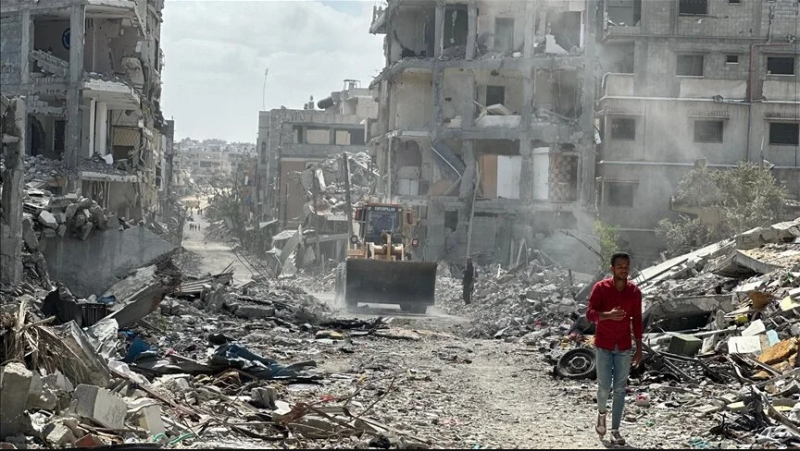The head of the International Committee of the Red Cross (ICRC), Mirjana Spoljaric, has described the situation in Gaza as “hell on earth,” speaking out as the Israeli military continues its intense operations in the region.
Her remarks came on the same day the UN human rights office issued a warning that Israel’s actions were making life in Gaza increasingly unlivable, potentially undermining the ability of Palestinians to survive there at all.
Spoljaric, whose organization is responsible for upholding the Geneva Conventions—global rules for wartime conduct—rarely makes public comments of this nature. But in this case, she felt compelled to say that what’s happening in Gaza represents an “extreme hollowing out” of international humanitarian law.
Since Israel resumed large-scale attacks on March 18, over 1,500 people have been killed, according to Gaza’s health ministry. Nearly 400,000 people have been displaced due to evacuation orders, and Gaza remains under a full blockade, with no entry of food, medicine, or supplies since March 2.
Israel maintains that it follows international law and blames Hamas for embedding fighters among civilians. Israeli officials also argue that there is enough food in Gaza and that the military campaign is aimed at pressuring Hamas to release hostages taken during the October 7, 2023 attack.
Still, under the Geneva Conventions, Israel—as an occupying power—has a legal duty to provide civilians with essentials like food and medicine and to protect hospitals, health workers, and civilians from forced displacement.
“No country is above the law,” said Spoljaric. “War crimes, ethnic cleansing, genocide—none of these are excused based on who you’re fighting. These laws apply to everyone.”
She added that civilians in Gaza are paying the highest price, often displaced multiple times and living in destroyed homes. The UN also confirmed that in 36 recent Israeli airstrikes it verified, all those killed were women and children.
Israel strongly denies accusations of genocide and says its military efforts target Hamas fighters, not civilians. The Israeli military is reviewing recent airstrikes, including one that killed members of a single family in Khan Younis, while also reporting 40 new strikes on what it described as “terror targets.”
The ICRC’s statements join a growing outcry from global organizations. The UN’s human rights office warned that Israel’s campaign may be creating conditions in Gaza incompatible with the continued existence of the Palestinian population there. They also noted that Israel is bombing areas like al-Mawasi, where it had previously told civilians to seek shelter.
Earlier this week, the UN Secretary General called Gaza a “killing field” and said Israel’s blockade is violating international law. Top UN aid officials also issued a joint plea for action to prevent further loss of life and uphold the basic rules of war.
Spoljaric emphasized that the Geneva Conventions—written in the aftermath of World War II—were designed to protect civilians and maintain a basic sense of humanity during conflict. “These rules aren’t optional. You don’t get to ignore them based on what your opponent does,” she said.
She called for a renewed ceasefire, noting that during previous pauses in fighting, the ICRC successfully helped reunite Israeli hostages with their families. But she also warned that the world is becoming numb to war crimes and turning its back on the laws meant to prevent them.
“This war will haunt us for generations,” Spoljaric said. “The suffering in Gaza cannot be undone.”
Israel launched its current military campaign in response to Hamas’s October 7 attack, which left about 1,200 Israelis dead and over 250 kidnapped. Since then, Gaza’s health ministry says more than 50,000 people have been killed.
















